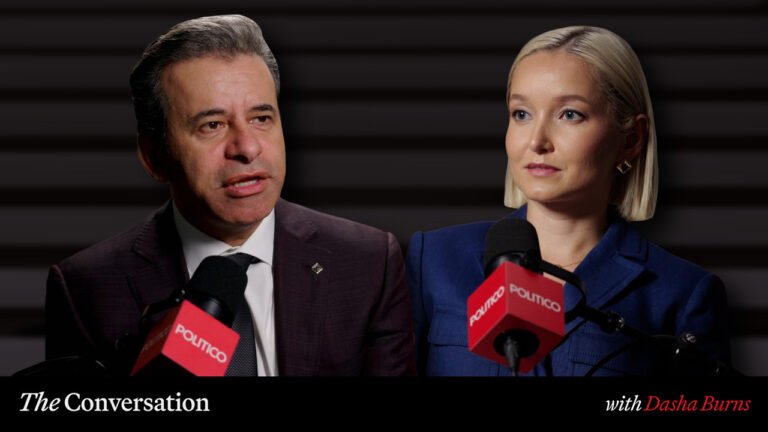
The Middle East is no longer the epicenter of American foreign policy — and that’s a good thing.
A new regional balance of power is taking shape, driven not by American diplomacy or intervention, but by the actions of regional players checking one another. It’s messy, competitive and often tense, but it reflects the actual distribution of power in the region. That’s what makes it sustainable — and why the U.S. should resist the urge to interfere. This emerging equilibrium offers Washington something it hasn’t had in years: the freedom to reallocate strategic attention to the Indo-Pacific, where the stakes are far higher and the risks more acute.
This is not the result of a coherent American strategy. It’s the byproduct of retrenchment, exhaustion and the failure of previous efforts to impose order from above. Over the past 20 years, the U.S. pursued a series of projects — regime change, counterinsurgency, peace processes, alliance building — that all shared one fatal flaw: They ignored how power actually works in the region. What has emerged now, in the space left by American overreach and subsequent pullback, is a balance-of-power system shaped by regional actors with their own interests, capabilities and limits.
Israel, Iran, Turkey and the Gulf states are not coordinating, but they are reacting to one another. None of them can dominate outright. All of them can block. That’s the default setting in international relations — not harmony, not hierarchy, but balance.
What matters is that this balance reflects the current structure of power in the region. It is not perfect, but it is real. And it is better aligned with American interests than anything Washington tried to build over the past generation.
Start with Israel. Its military remains unmatched. Since the Oct. 7 Hamas massacre, Israel has reasserted its deterrence through sustained operations in Gaza and strikes against Iranian-linked targets across the region. Hezbollah has been kept off balance. Iran’s network of proxies is absorbing steady punishment. But Israel is not stronger diplomatically than it was before the war. Its normalization track with Saudi Arabia is stalled, its image has suffered and its ability to translate military superiority into regional leadership is limited. Israel is a central player in the regional balance, but not a hegemon.
The Gulf states have become more pragmatic and more independent. Saudi Arabia and the United Arab Emirates are no longer treating Washington as the ultimate guarantor of their security. They’re hedging — working with Israel where it makes sense, opening channels to Iran when needed and keeping lines open to China. Their posture is defensive, but increasingly competent. They don’t want to fight Iran or confront Turkey directly. But they also won’t allow either to dominate the region. What they want is space — and the ability to act without relying on American muscle. That suits U.S. interests just fine.
Iran, despite its ambitions, is operating under growing pressure. Sanctions are grinding, the economy is brittle and domestic discontent continues to simmer. The Islamic Republic is still backing Hezbollah, the Houthis and militias in Iraq and Syria — but at growing cost. Its Red Sea campaign has triggered sustained Western military responses. Its role in Lebanon is under strain and its proxies are vulnerable. Tehran remains dangerous, especially on the nuclear file, but its regional influence is now defined as much by overextension as by strategic momentum.
Turkey is pursuing a different kind of revisionism. Prime Minister Recep Erdogan wants to reassert Turkish leadership across the Sunni Muslim world. His government supports Hamas, antagonizes Egypt and positions itself as a spoiler in Syria and Libya. But Turkey’s ability to project sustained power is limited. The economy is fragile and its military is stretched. Its NATO membership complicates U.S. options, but Ankara’s ambitions have triggered resistance from nearly every serious actor in the region. Like Iran, Turkey is being balanced — not by American policy, but by regional pushback.
What this all amounts to is a regional system that — while volatile — is stabilizing itself. There is no peace process and no unified vision. But there are constraints. And that is how balance works: not through agreement, but through friction. That friction prevents any one power from dominating. It forces each actor to think twice. And it reduces the need for external management.
This is exactly the outcome the U.S. should want. It means fewer entanglements, less pressure to mediate or intervene, and a regional architecture that aligns with the logic of restraint. For the first time in years, Washington has the strategic breathing room to focus on what truly matters: blunting and balancing China’s ambitions in the Indo-Pacific.
That pivot has been long delayed, but it is still necessary. East Asia is where the U.S. faces the risk of great-power war. It’s where the economic future of the 21st century will be decided. And it’s where American deterrence is irreplaceable. The more U.S. resources, bandwidth and political capital are consumed by the Middle East, the harder it becomes to compete effectively with China.
This doesn’t mean abandoning the region. There are still core interests at stake: freedom of navigation, nuclear nonproliferation, counterterrorism and the security of Israel. But those interests don’t require American dominance. They require selective engagement, credible deterrence and a willingness to let others carry more of the burden. That includes saying no to regional partners who act recklessly and expect U.S. cover. And it means resisting the temptation to treat every flare-up as a test of American credibility.
What’s happening now in the Middle East isn’t ideal. But it is sustainable — because it reflects power realities, not aspirations. The regional balance is not the product of a summit or a strategy. It emerged because each actor realized there are limits to what they can achieve. And that’s the only kind of stability that ever lasts.
The Middle East does not need another American-led project. It needs space to breathe, to balance and to absorb the shocks that are inevitable in a region with this many grievances and ambitions. It may not last forever. But for as long as it does, the U.S. should protect it — by staying out of its way.
Let others manage the region they live in. Let America pivot to the region that defines the future. Let the balance hold.
Andrew Latham is a professor of international relations at Macalester College in Saint Paul, Minn., a senior fellow at the Institute for Peace and Diplomacy, and a non-resident fellow at Defense Priorities in Washington, D.C.

